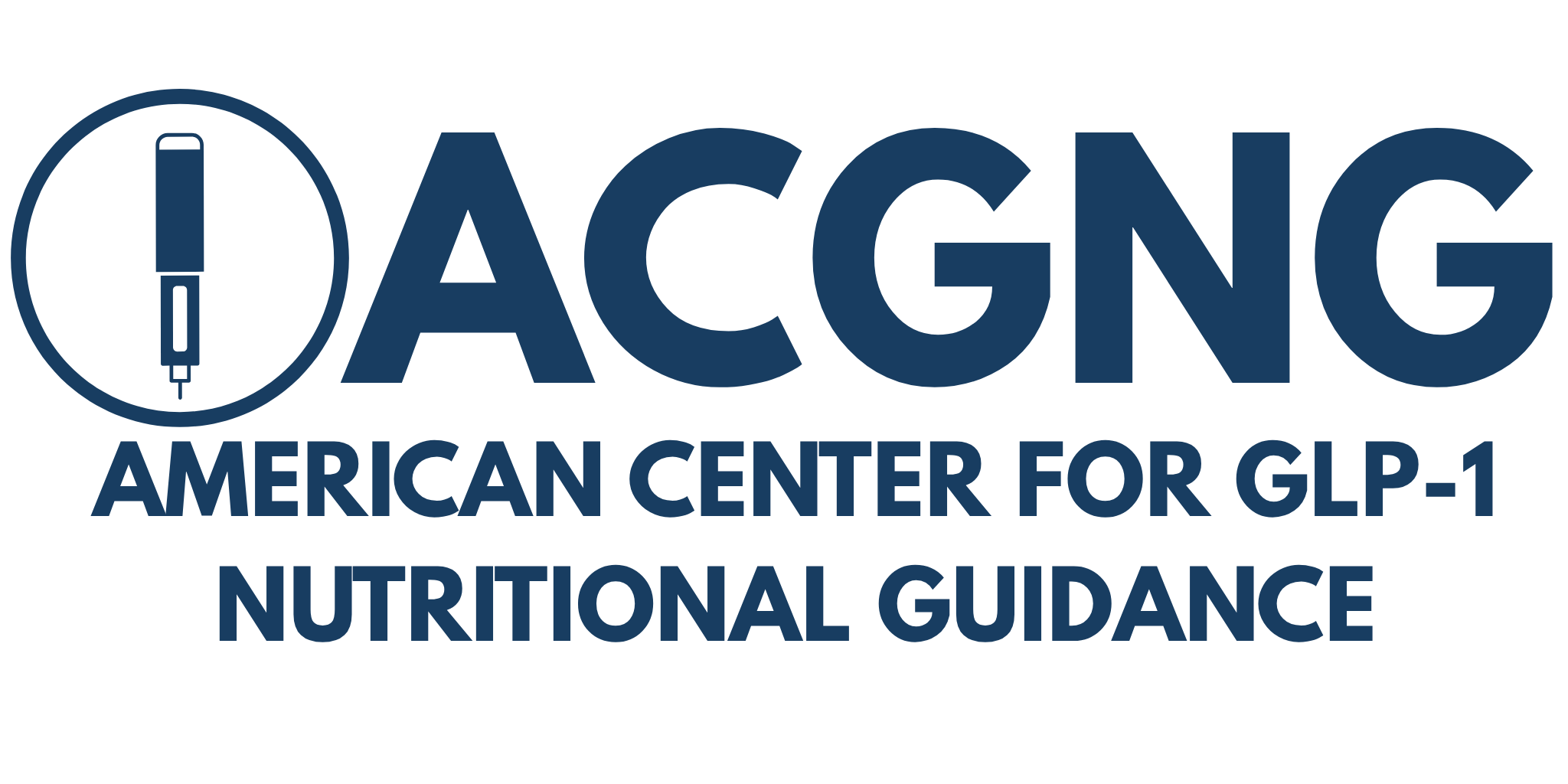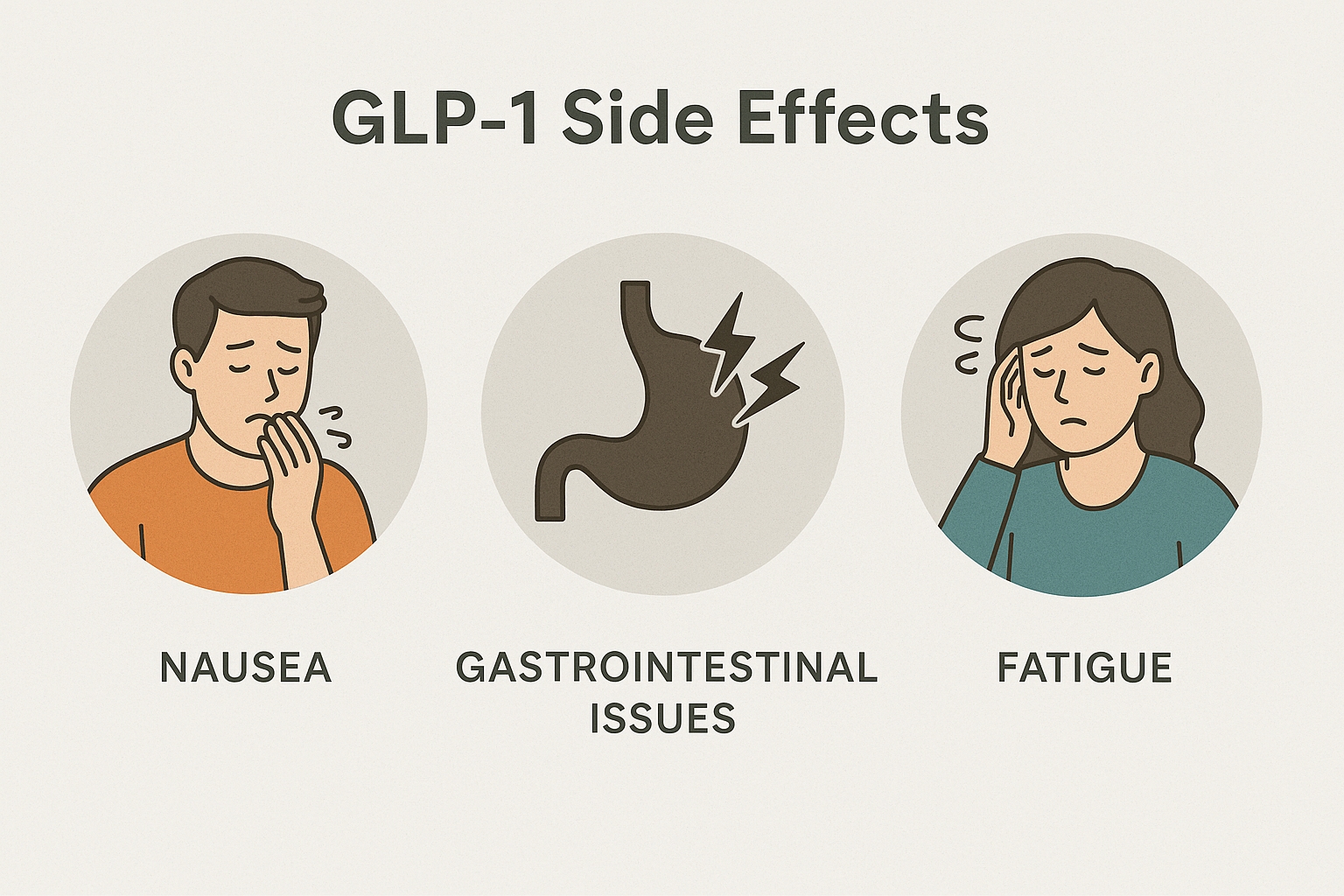Table of Contents
- Overview
- Common Side Effects
- Serious or Rare Side Effects
- Tips to Manage Side Effects
- Warnings and Precautions
- Scientific References
Overview
GLP-1 medications are generally well tolerated, but like all treatments, they come with the potential for side effects. Most are related to the gastrointestinal system and occur during the early stages of therapy. Understanding these effects—and how to minimize them—can improve treatment adherence and comfort.
Common Side Effects
These are typically mild to moderate and tend to improve over time:
- Nausea
- Vomiting
- Diarrhea
- Constipation
- Loss of appetite
- Feeling full quickly
- Fatigue or low energy (especially during calorie restriction)
Nausea is the most common complaint, particularly when starting or increasing the dose. It often resolves within a few weeks.
Serious or Rare Side Effects
- Pancreatitis: Inflammation of the pancreas—seek medical attention if you experience severe abdominal pain.
- Gallbladder issues: Gallstones and biliary disease have been reported.
- Kidney problems: Especially in patients with dehydration from vomiting or diarrhea.
- Allergic reactions: Rare but serious reactions (e.g., swelling, rash, difficulty breathing) require immediate care.
- Thyroid tumors: Rodent studies showed thyroid C-cell tumors, though human risk is unclear. Medications carry a warning for those with a personal/family history of medullary thyroid carcinoma (MTC).
Tips to Manage Side Effects
- Start with a low dose and increase slowly (as prescribed)
- Eat smaller, bland meals and avoid fatty or spicy foods during titration
- Stay hydrated—sip water regularly
- Avoid lying down after meals to reduce nausea
- Contact your provider before stopping treatment abruptly
Warnings and Precautions
- GLP-1 medications are not recommended for people with a history of MTC or MEN2 (multiple endocrine neoplasia syndrome type 2)
- Use with caution in those with impaired kidney function or a history of pancreatitis
- Women who are pregnant or breastfeeding should not use these medications unless specifically directed by a physician
- Always inform your doctor of any other medications or supplements you are taking
Scientific References
- U.S. FDA. “GLP-1 Receptor Agonist Safety Communications.” 2023–2024.
- Drucker DJ. “Mechanisms of Action and Safety of Incretin-Based Therapies.” Cell Metab. 2018;27(4):740–756.
- American Diabetes Association. “Pharmacologic Therapy for Adults with Type 2 Diabetes.” Diabetes Care. 2024;47(Suppl 1):S125–S143.
- Kushner RF et al. “GLP-1 RAs in Weight Management: Clinical Strategies.” Obesity. 2023;31(5):895–903.
This content is part of the GLP-1 Basics section from the American Center for GLP-1 Nutritional Guidance (ACGNG). Always consult a healthcare provider for personalized medical advice.

